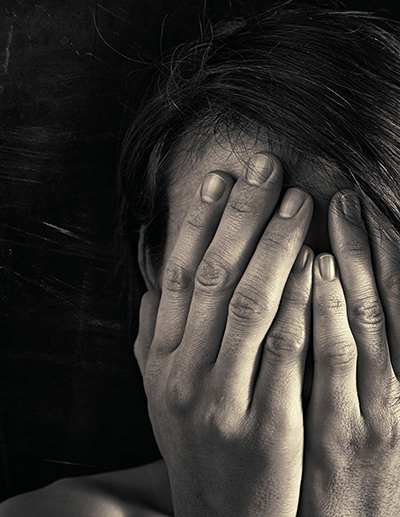Psychiatric nurses are trained to handle some of the most challenging cases in a hospital setting, but what happens when their patients try to do them harm?
 Uncovering post-traumatic stress among psychiatric hospital staff
Uncovering post-traumatic stress among psychiatric hospital staff
Psychiatric nurses are trained to handle some of the most challenging cases in a hospital setting, but what happens when their patients try to do them harm? A comprehensive new research study by William Jacobowitz, Ed.D., assistant professor in the College of Nursing and Public Health, “Post-Traumatic Stress, Trauma-Informed Care, and Compassion Fatigue in Psychiatric Hospital Staff: A Correlational Study,” reveals the circumstances and consequences of this complex issue.
During his 30 years of experience in the field, including a position as the chief nursing officer of a psychiatric hospital, Dr. Jacobowitz witnessed the high assault rate among nursing staff and those of other disciplines, as well as the ineffective response that followed. “For many of the staff on the unit, it was not uncommon after being assaulted—or for those who witnessed the act—to go through an anxiety response,” he reflected. “This manifested in staff asking for more support, better security and protection against violence, security guards and so on. Then it would tail off and start over again.”
Dr. Jacobowitz knew he had the tools to break this vicious cycle. “About six years ago, I left working in hospitals and started teaching at Adelphi so I could take a closer look,” he said. “There is a body of literature but the research has been spotty, and I thought we could do something better by looking at the variables: why some people have these post-traumatic reactions and others don’t.”
With approval from Adelphi’s Independent Review Board and a partnership with a local hospital, Dr. Jacobowitz turned to two graduate research assistants for help studying a sample of psychiatric healthcare workers. His students put the classroom into action with a variety of data collection tools, including a new measurement that would attempt to control for traumatic experiences outside of the work environment.
Dr. Jacobowitz faced several challenges when implementing the study. For one, the workers most profoundly affected by a violent experience may have left their positions— possibly transferring to a different unit or changing fields altogether—which meant his findings could miss some of the most potent possible data. What the research did reveal was a lack of significant correlation between trauma and decreased compassion for patients. Instead, workers most frequently showed a “burnout” factor regarding productivity, indicating that resilience is not necessarily completely protective with respect to post-traumatic stress syndrome (PTSS).
Yet, workers still need to build resilience to traumatic events before they happen, Dr. Jacobowitz maintains. The ability to self-soothe under stress and activate an internal calming dialogue is vital, which can be cultivated through psychotherapy and orientation programs. “If we can talk with people about what they may encounter well in advance, they’ll have more tools to respond to a traumatic event,” said Dr. Jacobowitz.
This research also has useful applications for other fields, particularly when it comes to raising awareness and creating coping strategies that can be employed post-trauma. PTSS is not unique to psychiatric nursing, Dr. Jacobowitz points out, and is often diagnosed among the military, emergency workers and field doctors and nurses. “We even see this among drone operators, who are affected by the images they see when bombs are dropped,” he said, noting the global relevancy of his work. “When I started to get interested in this subject, I spent a number of weeks in the Middle East training how to debrief people who have been exposed to terrorism. We hear a lot about terrorism in the media, but what gets missed are the tremendous needs of the survivors.”
That far-reaching perspective is an asset to Dr. Jacobowitz’s role at Adelphi, particularly for his doctoral students from diverse backgrounds exploring the intersection of healthcare and society. One African-born student is examining racial bias in the treatment of hypertension, while another student from the Middle East is focusing on how antipathy toward the Muslim community is impacting Muslim-Americans’ pursuit of healthcare.
“In my own way, I’m providing a small part of the greater body of literature,” said Dr. Jacobowitz of his study’s important contribution to the field of PTSS and public health. “It’s a debilitating condition that not only affects people personally, but also work productivity, family and relationships. It’s a big issue that we need to address.”
*Christine Moran, Cheryl Best, M.S. ’13, and Lucy Mensah, M.S. ’13, also contributed to the study.
William Jacobowitz, Ed.D.’s research focuses on post-traumatic stress syndrome and mental health nursing. He holds master’s degrees in both psychiatric mental health nursing and health policy, as well as a doctorate in education, all earned from Columbia University. In addition to being an assistant professor at Adelphi, he is director of Lynnbrook Supportive Therapy.For further information, please contact:
Todd Wilson
Strategic Communications Director
p – 516.237.8634
e – twilson@adelphi.edu